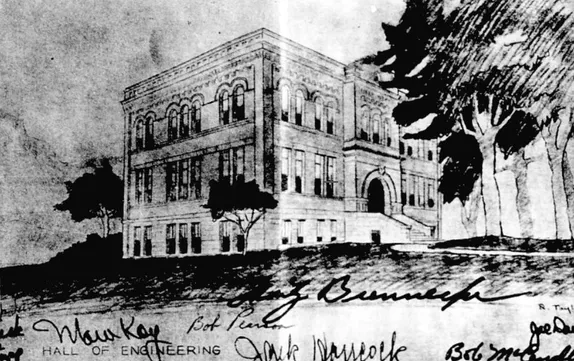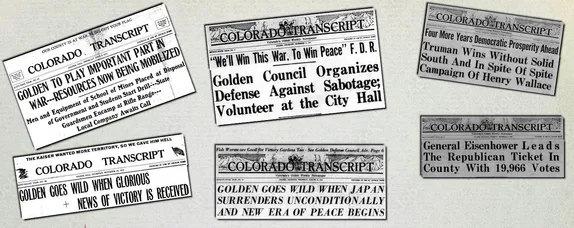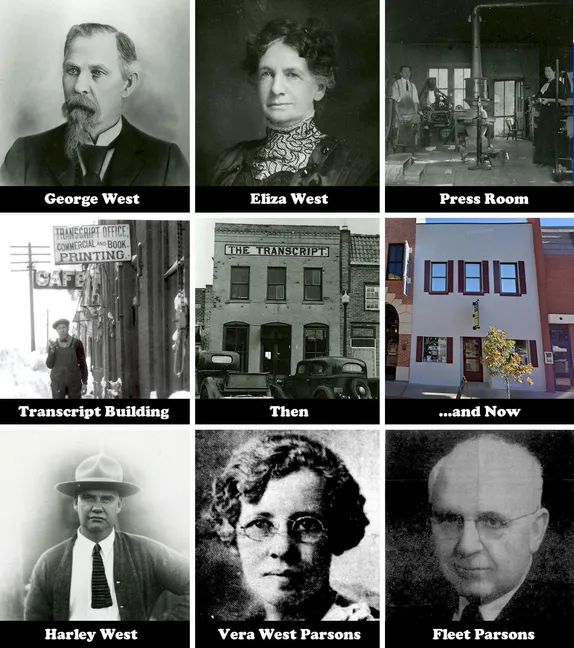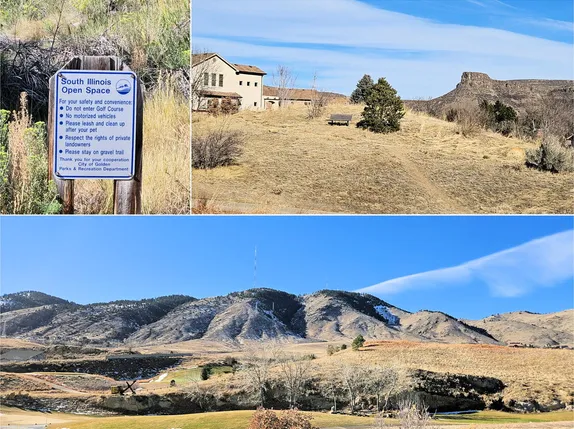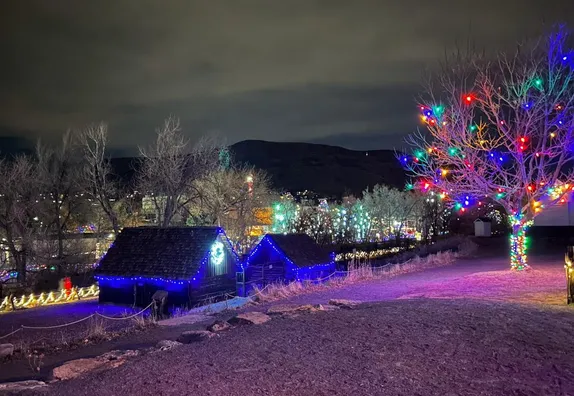In honor of International Women’s Day, here’s a post about one of my favorite historic Golden women–Eliza West. Paul Haseman did a lot of the research for this piece, so thanks Paul!
Eliza Boyd West was the very definition of a pioneer woman. She arrived in Golden in 1859, at the age of 16. She was the fourth of six children in the Boyd family. The family, originally from Pennsylvania, traveled here as part of a wagon train, with 33 year old George West serving as the wagonmaster.
George West served with Union forces in Missouri during the Civil War, and occasionally made trips back to Golden. On one of those trips, he married Eliza (September 20, 1863) and she accompanied him back to Missouri. While there, she helped care for the sick and wounded. She also bore (December 1864) and lost (January 1865) their first child. Later that year, the war ended and the pair returned to Colorado.
George West started the Transcript in December of 1866. While Eliza probably helped in many aspects of the business, we know for sure that she wrote for both the Transcript and other publications under the pseudonym of “Kate Warrenton.” After George’s death in 1906, Eliza became the Transcript’s President.
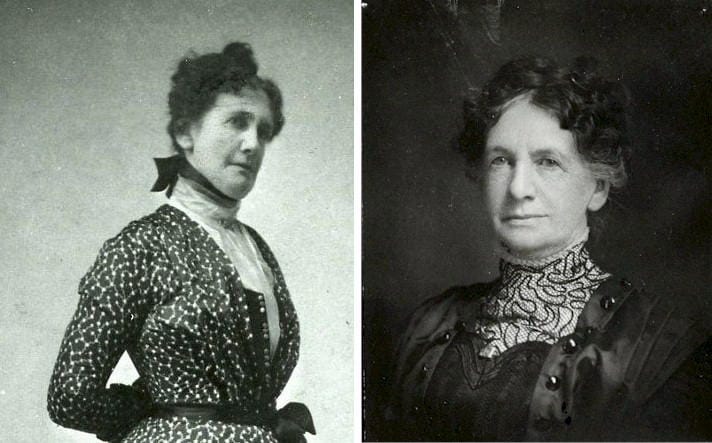
The Wests had four more children: George Leslie (1868-1869), Marguerite West Kimball (1866-1949), Leslie Boyd West (1870-1902), and Harley Dean West (1879-1927). The family were active members of Calvary Church and they lived at 1018 12th St. (map). The family business was based in the Transcript building at 1115 Washington Ave. (map). The family traveled quite a bit. Railroads were heavy newspaper advertisers, but they paid their bills by providing free rail passes.
Pioneer women such as Eliza were considered the “civilizing” element in the west. They worked to build and support schools, churches, charities, and cultural institutions. For the most part, those efforts were not documented in newspapers. Neil West Kimball, the West’s grandson, said “it was too bad the newspapers in those early days did not feature a society page…so that there would have been a better record of just who the women of that day were and what they were doing.” (Colorado Transcript, October 26, 1939).
Neil Kimball also quoted a story provided by the owner of the Boulder Camera:
“The general was at an editorial meeting,” Colonel Paddock’s story went, “and we were discussing the state of the nation at a bar. Our drinks were set before us when he called for a bowl of crackers and a spoon. He crumbed the crackers, poured whiskey over them and ate the mixture with a spoon. When we questioned him, West said, ‘I promised my wife I wouldn’t drink hard liquor on this trip, and by gosh I’m not going to lie to her’.”
Here again, the focus is on George, but at least Eliza plays a small role in the story. Upon Eliza’s death in 1920, a friend published this tribute in the Transcript:
“…a pioneer woman who faced the hardships of Colorado’s early days with a fearlessness and intrepidity equal to the Pilgrim mothers. A woman who was not afraid to pit herself and her forces against the sterility of a new country and make it blossom and bear fruit…. The west owes much of what it is today to these pioneer women who brought into it energy, courage, zeal and enthusiasm and a boundless faith.”
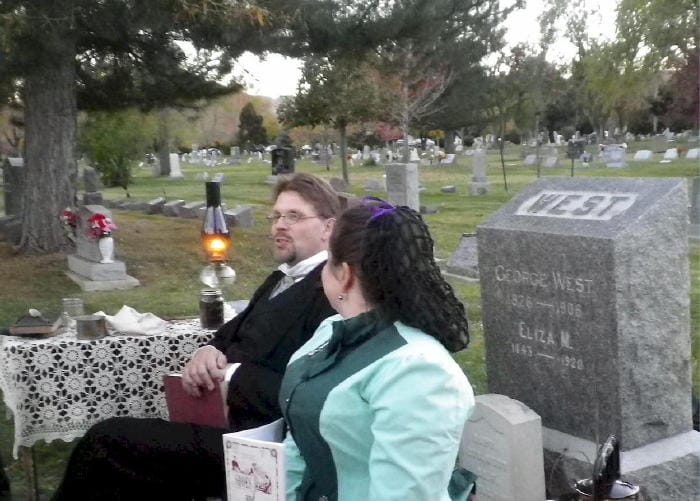
Eliza is buried next to George, surrounded by their children and grandchildren, in the Golden cemetery.

Thanks to the Golden History Museum for providing the online cache of historic Transcripts, and to the Golden Transcript for documenting our history since 1866!


